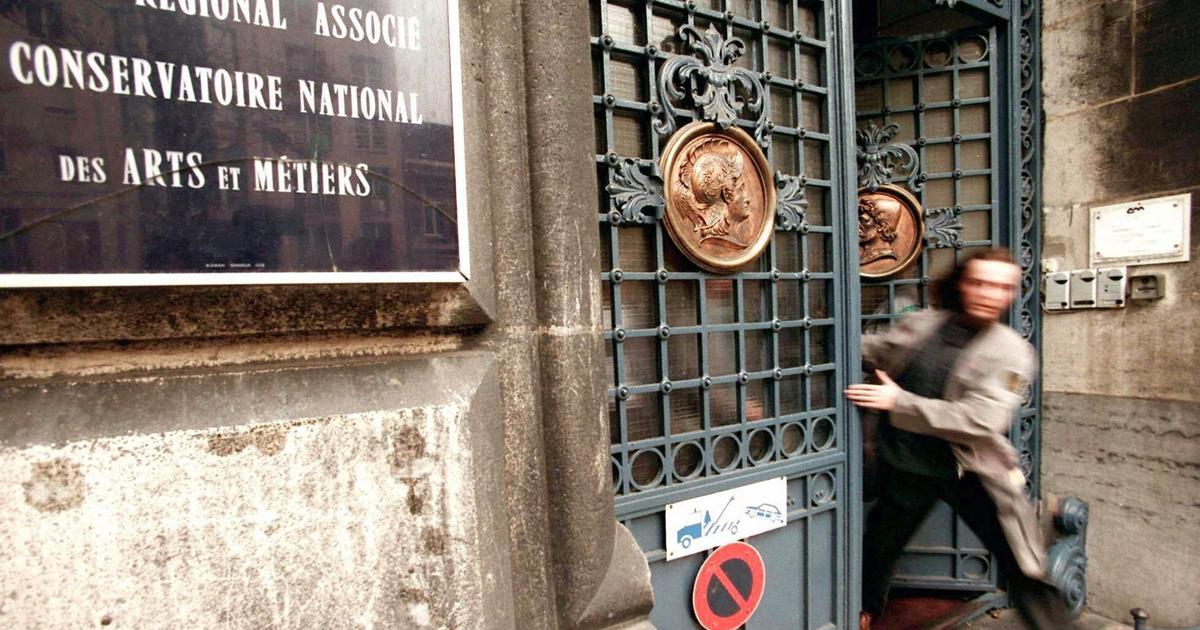"It is lar'∫∫ tap'∫∫ for the ap'∫∫ to zocquer his hollow vat."
Do these words leave you speechless
?
So did they, at least for the first few months.
The beginnings are whimsical at Arts et Métiers (ENSAM), and contrast with the sometimes austere rigor of the titanic work provided in preparatory classes to integrate this prestigious school.
Discovery of the campus, transmission of traditions and above all of this famous jargon that is the
"argadz"
...: the first trimester is devoted to what the students call
"machining"
, understand the period which sees the second year welcome newcomers.
"The term comes from our industrial traditions, with this metaphor of refining raw potential, that is to say which has not been worked on, to make it the jewels of our school"
, explains Cyril, last year.
"The reception of a booklet with the translation of the jargon is done quite early"
, adds Vincent who also finishes his schooling,
"after some activities to understand its solemn aspect".
To discover
Crosswords, arrow words, 7 Letters... Free to play anywhere, anytime with the Le Figaro Games app
” READ ALSO – “Ginette”, “Franklin”, “L'X”… Where do the nicknames of these schools come from?
It's a whole jargon that has been shaped and transmitted for generations, with its vocabulary, its rules of grammar...and even its onomatopoeia.
A jargon that gives shape to a world that you are not likely to understand if you are not initiated into it.
For Vincent, this hermetic and unknown language of new students allows
“to have all the cards completely reshuffled on arrival at school.
Everyone is in unfamiliar territory.
This language therefore shapes an esprit de corps.
But where does it come from?
"It is the conflicting aspect that is at the origin of this language"
, specifies Cyril.
Founded at the end of the 18th century to educate the wards of a cavalry regiment, the school then
trained “the foremen of the Industrial Revolution”
, explains Vincent.
“They were all in boarding school, the supervisors were strict and the rules of the dormitories very strict”
.
For Cyril, the jargon is thus constructed
“so that the students can communicate with each other without being understood by the rhinestones [the hierarchy].
They were stronger together
.
Hundreds of semantic finds
But why this name
"argadz"
?
“Slang first became argal, because we inherited military traditions in which the o's become al
,” explains Vincent.
This last syllable sounds like
'gadz'
, short for
'gadzart'
[arts guy], the moniker proudly worn by the students.
That's all it takes for a semantic find to emerge,
"argadz"
, perpetuated for more than two centuries.
To the list of nearly two hundred words transmitted, it is necessary to add all the deletions of end of words, replaced by an
"'s"
.
Aperitif is called
"aper's"
, school is called
"ec's"
.
However, there is no question of abbreviating important words, such as
"Tradition"
, which are capitalized and written in Gothic letters with great application.
Vincent and Cyril jealously watch over the rest of the vocabulary:
“Nothing is really secret, but everything is a surprise.
We have nothing to hide, but we don't want to spoil the emotion of discovery for those who follow."
Some words vary between the seven freshman campuses, but
"there is a cohesive dictionary to keep a common ground"
.
The
"gadzart"
of Angers recognizes in the evening or in the street the
"gadzart"
of Lille.
The
“sal's”
, hear
“hello”
, or certain onomatopoeia are then to gadzart what the
“tea for two”
is to Louis de Funès in
La Grande Vadrouille
: a signal of recognition.
"On the street, when you see someone wearing a square or some other reference, you can easily say 'sal's' followed by a nice wink to confirm that the guy is in school."
In the second year, the matter is simpler: the students must grow beards and hair, which makes them easily identifiable.
And this strong sense of belonging continues well beyond the three years at school.
One question, however, burns us: is the language so well anchored that it becomes commonplace?
“It is difficult to do without certain words, more practical, faster.
We sometimes have the impression that this jargon is universal because we used to speak it for three years and that people understand it around us
, concludes Vincent.
Once in our families, we realize that not.









